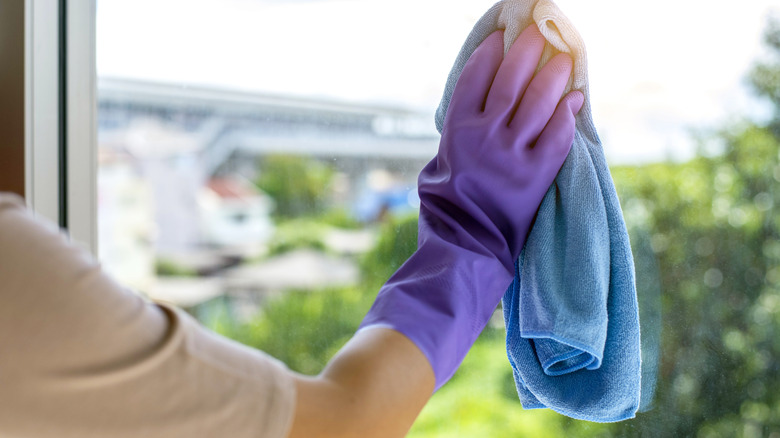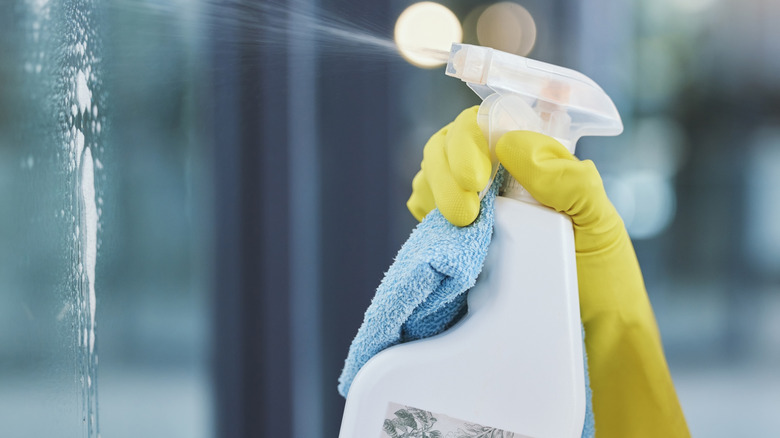Yes, You Can Use Stove Top Cleaner On Glass Windows, But Should You?
We may receive a commission on purchases made from links.
While you might prefer cleaning your home's windows with glass-specific cleaners such as Windex, there can be some instances where the bottle is empty and you're in need of a backup. Can a bottle of glass cook top cleaner be a good replacement? Yes, technically, you can use a glass stove top cleaner on your home's windows, but it's not ideal. This is because the formula of these cleaners can be too harsh for your window glass, and could even leave the surface looking worse than when you started. It might work for a small smudge or spot here and there, but it should never replace your regular window cleaner.
Cleaning your windows isn't just a chore to help keep your home looking neat, it has practical applications as well. Regularly cleaning your windows helps extend their lifespan as it prevents dust and grime from scratching the surface. Dirty windows can also reduce the amount of natural light that comes into your home, casting your room in shadows, forcing you to use your home's lighting more. The buildup may also reduce solar heat gain, requiring you to use more heat during the colder months and more AC during the warmer ones. The sparkling shine your clean windows boasts of can be an excellent way to boost curb appeal on a budget and keep an eye on the ongoing condition of the glass. However, if you use a glass stovetop cleaner for the task, you may find yourself with unsatisfactory results, and here's why.
Why you should avoid using glass stove top cleaner on windows
A glass stovetop cleaner is designed for tackling tough messes, such as burnt-on, stubborn residue on your cooktop, making it more abrasive than window cleaners. They're effective at scrubbing away the crusty remnants of your overflowing spaghetti pot, but that same scrubbing power can scratch your delicate window glass. That's because cooktop glass typically features tempered ceramic glass, which is much more durable as it's built to withstand direct heat.
Often dispensed in a thick gel form, stove top cleaner can also leave a hazy film on the surface, making it difficult to get the same results as you would with something like Windex. Even stove top cleaners labeled "non-abrasive" aren't recommended because some, like Weiman Glass Cooktop Cleaner & Polish, may contain polishing agents. These ingredients are meant to buff your stove's surface to a sparkling shine, but can be too rough on window glass. On the other hand, glass cleaners are good for tackling window buildup, often with the power of ammonia to cut through the grime. If that's too harsh for you or you want something eco-friendly, you can make a homemade window cleaner with gentle, all-natural ingredients that won't damage the glass. Just combine 1 part distilled white vinegar with 10 parts warm water in a spray bottle, shake, then apply to the window, wipe, and rinse.

